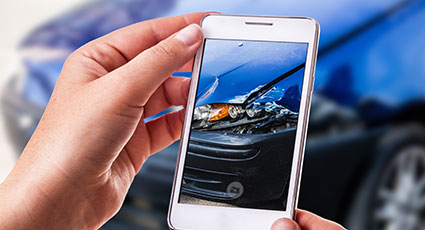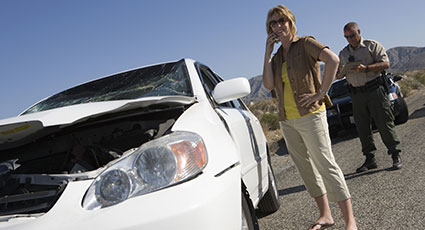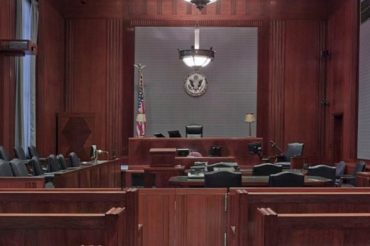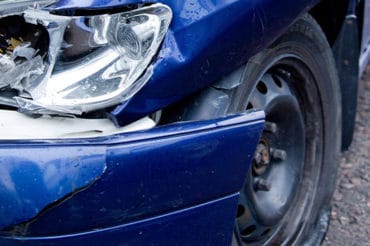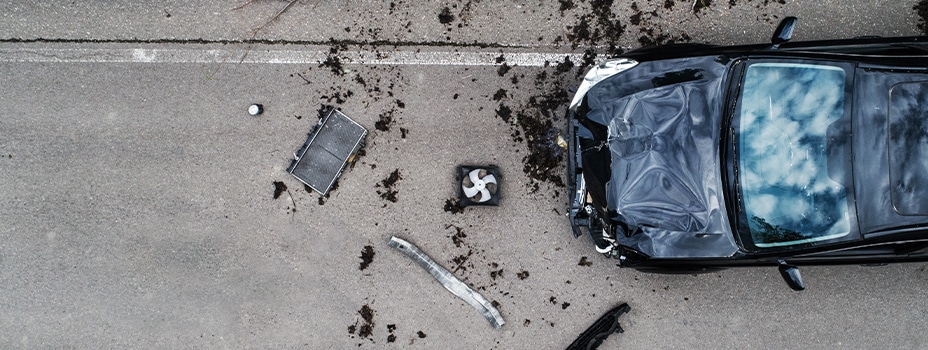
About Auto Accidents in Florida
The state of Florida is a no-fault auto insurance state. This means that in the event you are involved in a motor vehicle accident, each and every driver and all passengers as well will use their own insurance policies for paying damages to the policyholder, regardless of fault. For persons involved in an accident without car insurance, knowing what to do can be frustrating.
If you are uninsured but did not own a vehicle at the time of the crash you may be liable for No-Fault or Personal Injury Protection (PIP) coverage through the at-fault driver’s policy.
Navigating the twists and turns of insurance coverage is a difficult road to navigate and hiring a personal injury attorney to help you through this time consuming, and difficult process is always recommended.
What You Need to Know About Insurance Coverage & Auto Accidents
You have coverage, but the other driver does not
If you have insurance coverage, but the other driver does not, your insurance company will be liable to pay your initial $10,000 in PIP coverage for your medical bills in addition to any lost wages among other benefits you have under this coverage.
If you carry Uninsured Motorist Coverage, you may be eligible to get an injury settlement as well because the driver that caused your accident was not insured at the time of the incident.
In any case, your insurance company will be liable for:
- medical bills,
- property damage to your vehicle,
- any potential injury settlement, and
- any other coverages you carried at the time of the loss because the other driver did not have insurance
You don’t have insurance coverage, but the other driver does
When you do not carry automobile insurance and you are involved in an auto accident in Florida with an insured driver, you are still eligible for some, but not all, of the automobile insurance coverage available, should you have been insured at the time of the loss.
You will not be afforded PIP because Florida is a No-Fault state and as explained each person involved in a crash will use their own insurance for this. Since you were not insured, you will not have access to this coverage.
You will be afforded Bodily Injury Coverage available to the at-fault driver at the time of the crash in addition to any property damage coverages they carried and rental car reimbursement. Everything will need to go through the adverse driver’s insurance company as you were not insured at the time of the collision.
What If Neither Driver Involved In The Car Accident Has Insurance?
If neither you nor the at-fault driver carried auto insurance at the time of the collision, neither you nor the other driver would be afforded insurance coverage of any kind.
Your license may also be suspended and, before issuing you another license, the state of Florida will require you to pay for a policy in full and prove that you are insured while driving.
One thing to consider in Florida is that motor vehicles are considered dangerous instrumentalities. This means that the driver of a motorized vehicle, in addition to the owner of that vehicle, are both liable when that vehicle is involved in an accident
This translates to both the drivers and the owner’s insurance policy being effective for an incident. So if the driver or owner or both have coverage, each or both coverages would apply to the incident assuming they were at fault.
What To Expect If The Car Accident Is Not Your Fault
Again, Florida is a no-fault auto insurance state. This means that even if the car accident is your fault, the other driver’s car insurance policy should cover any minor damages or injuries that he or she sustains. If the driver you hit has uninsured or underinsured motorist coverage, then you’re in luck.
Not only will your car insurance pay for all damages sustained but it will also pay for lost wages, pain, and suffering, plus emotional trauma, that is, if you carried uninsured/underinsured motorist coverage. Standard insurance coverage typically just pays property damage and medical expenses.
The state of Florida only requires Personal Injury Protection (PIP) coverage and Property Damage (PD) coverage to be “fully insured” even though with these bare minimum coverages you are far from fully Insured.
However, if the accident caused permanent disabilities or serious injuries to the other driver, then the driver has the right to pursue a claim against you for the injuries and other damages they sustained as a result of your negligence. You will need to contact an auto accident attorney immediately to help you through this situation as the potential for great loss is high under these circumstances.
What To Expect If You Were Not Insured
The biggest disadvantage in an accident caused by another driver if you don’t have auto insurance is you’ll most likely have to pay for your own damages out of pocket. This means that you will be personally financially responsible for your losses in addition to any losses you caused a result of your negligence. Because you drove without insurance, any medical expenses, lost wages, or property damage will not be covered by an insurance policy, including the other drivers.
Uninsured drivers carry immense risk in the state of Florida with penalties of:
- a suspended license,
- financial damages, and
- being uninsurable depending on certain circumstances
This means that an uninsured driver involved in an at-fault collision often will have a very difficult time driving legally in the state of Florida for months and sometimes years following an at-fault collision.
You will probably be assessed a penalty for driving without insurance, such as suspension of your driver’s license. The reinstatement fee for a Florida driver’s license is around $150, and $500 for subsequent violations, according to the Florida Department of Highway Safety and Motor Vehicles.
In addition, you will be required to pay future insurance premiums in full prior to receiving your license back as discussed above.
However, if you have sustained permanent or severe injuries, you can file a personal injury claim against the driver who caused your accident.
Damages you may be able to recover include:
- pain and suffering,
- medical expenses both past and future, and
- lost wages
If you failed to get a police report or the other driver’s insurance information and would like to pursue a personal injury lawsuit, an attorney can help you to obtain that information. That said, it is always a good idea to call the police and if you cannot for whatever reason get a picture of the adverse driver’s drivers license, license plate, and insurance card because it is very likely that they will deny involvement or liability after leaving the scene.
Also, find and obtain the contact information of any witnesses to the incident as these witnesses often times prove extremely valuable in liability disputes.
Some other things that may affect you, even if the accident was the other driver’s fault, are Florida’s comparative fault laws. If you were 20 percent at fault for the accident, for instance, you may lose 20 percent of the total amount of damages. That means if you were owed $100,000 worth of damages, you may only be able to collect $80,000.
Comparative fault, should there be any, is typically determined early on in the investigation phase of a claim but if you ever feel the insurance company’s determination of fault is inaccurate, you can file suit and have your case heard by a jury to determine the facts of the case.
What Are the Consequences for Uninsured Drivers With the Florida DMV Following an Accident?
The DHSMV will suspend your driver’s license if you have an accident while you are uninsured, as well as your vehicle registration, plate, and tags unless you meet their requirements by a deadline they specify.
The DHSMV enforces insurance laws through their Bureau of Motorist Compliance (BMC). This agency deals with uninsured drivers who have accidents. If the other driver(s) involved in the accident pursue(s) legal action against you – and obtain a judgment against you for damages – the BMC can suspend your license for as long as 20 years, or until you satisfy the judgment by paying the damages.
To avoid this fate, you must forward your SR-22 to the BMC or your local DHSMV office by their deadline, along with the liability releases you obtained from each person involved in the accident.
How to Protect Yourself
When there is no insurance coverage for either or both parties involved in a crash, the financial implications can be difficult to overcome. Unfortunately, we live in a time where insurance is a must. Fortunately, we live in a time where there are many options for insurance coverage. Get good coverage, retain that coverage, and drive safely are the best bits of advice I can give you. That way, you will always know you are protected in the event someone else decides to operate their vehicle negligently. You cannot depend on others to carry the proper insurance to protect yourself in the event that you are involved in an accident.
If you are involved in an accident in Florida with or without insurance coverage, it is always the safest idea to contact a personal injury attorney immediately. We are the professionals specifically trained to assist you in these and all other situations which may arise.

